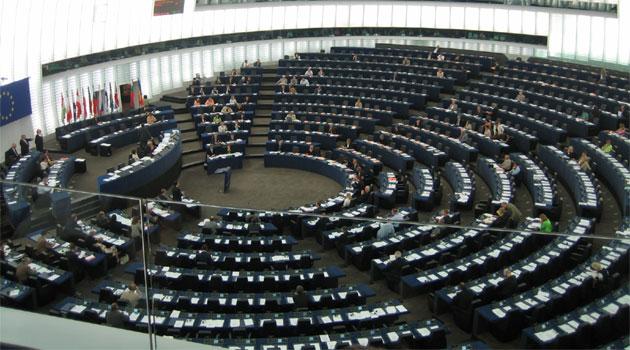European Parliament supports Commission's proposal for refugee redistribution

The Member States had the last word on whether to launch the emergency redistribution of asylum-seekers from Eritrea, Iraq and Syria. The Czech Republic may be expected to receive 2 978 asylum-seekers as a result.
Most EU countries support the proposal, which was decided yesterday. Jean Asselborn, the Foreign Minister of Luxembourg, which now holds the EU Presidency, indicated during the discussion at the European Parliament that there was an option to "force" a solution.
EU-28 diplomats have intensively negotiated with those opposed to the plan in an effort to find a compromise acceptable to all. According to Commission Vice-President Frans Timmermans, the EP vote sent a clear signal to Member State capitals that both the EU’s executive and its legislative branch believe it is high time to actually do something about the crisis.
The Commission reiterated that opinion in a statement after the EP vote, noting that Member State agreement was all that stood in the way of the plan. The EP’s press department said that 370 of the 550 legislators present voted in favor of the Commission’s plan and only 134 voted against.
While a clear majority of votes was in favor of the plan, less than half of all the EP members were present for the vote. The extraordinary session on the plan was convened by EP head Martin Schulz the day before and lasted only half an hour.
There was no floor debate of the plan by MEPs on 17 September, just brief speeches on the issue by the leaders of the various factions. The vote followed a statement adopted earlier in September by the EP expressing its concern over the growing incidence of fundamental rights violations EU-wide.
In its report on the upholding of those rights in the EU for 2013 and 2014, the EP speaks in detail about discrimination against migrants, Roma and sexual minorities as well as about anti-Semitism and Islamophobia. The report was approved by a slim majority of MEPs and states that anti-Romani sentiment is rising in the EU.
In the section of the report dedicated to the situation of Roma in the EP, the MEPs express their concern "over many cases of persecution, violence, stigmatization, discrimination and illegal expulsion that contravene fundamental rights and EU legislation." They also drew attention to discrimination against Romani people in Member State education systems and labor markets.
The Czech Republic has been regularly criticized by international institutions and NGOs over discrimination against Romani people. The European Commission has launched infringement proceedings against the Czech Republic over discrimination of Romani children in the schools.
Czech authorities have repeatedly defended the country by saying such criticism is based on inaccurate data and that more and more Romani children are now being assigned to mainstream education. Another part of the EP resolution addressed the migration crisis that has become the EU’s most burning problem in recent months.
The resolution referred to the fundamental right to seek asylum and urged the EU and its Member States to allocate and make available sufficient resources to create "lawful new security options and procedures to facilitate asylum-seekers’ access to the European Union." The EP also called on the Member States to create "an effective, harmonized EU asylum system for the fair redistribution of asylum-seekers among the Member States."
In an obvious reference to Hungary in particular, the EP condemned security protections of the EU border that are currently sometimes taking on "the form of walls and fences of barbed wire." The EP said a lack of options for legal entry into the EU leads to a large number of asylum-seekers and migrants ending up in a situation where they must use ever more dangerous routes and place themselves in the hands of smugglers.
The EP also pointed out the negative impact of the Dublin regulations given that there is no common EU asylum system. The practice continues to apply of returning migrants to the country where they first entered EU territory, but according to the EP, the European Commission and the Member States are not attempting to create possible alternatives to this practice that could be based on solidarity among the Member States.
The issue of the migration crisis and redistribution of refugees was also scheduled for discussion by the EP in special debate. In the report on upholding fundamental rights the EP also expressed concern over the apparent rise in anti-Semitism in Europe and growing Islamophobia.
The report says that the EP is "very disturbed by the fact that, because of growing anti-Semitism, discrimination, and violence perpetrated against the Jewish community, many of its members are considering emigrating from Europe." The EP also references attacks against mosques and "the frequent confusion of the Islamic religion with the religious fanaticism of a tiny minority."
The EP is calling on the Member States not to tolerate any such behavior. At only one point does the EP report mention the situation of one specific country, asking for religious freedom to be respected in occupied Cyprus, where the EP says more than 500 cultural and religious monuments are at risk of collapse.